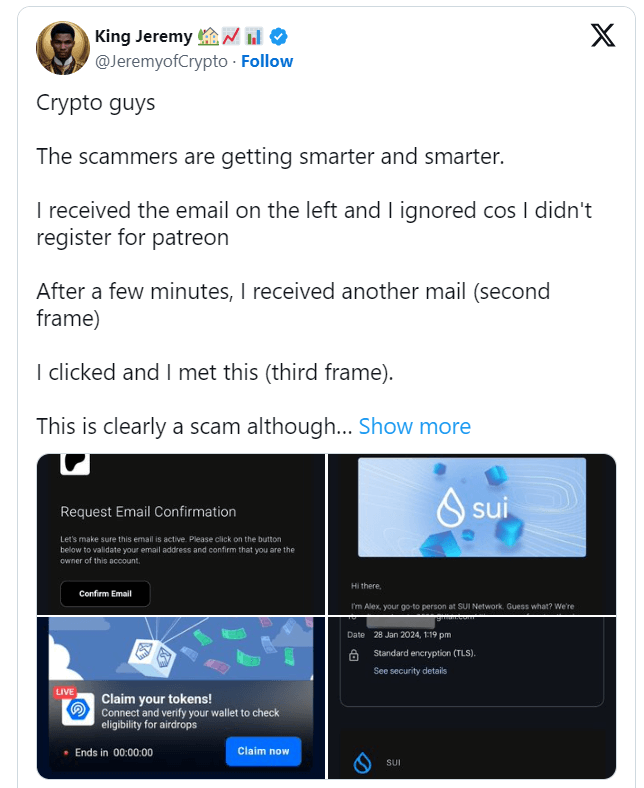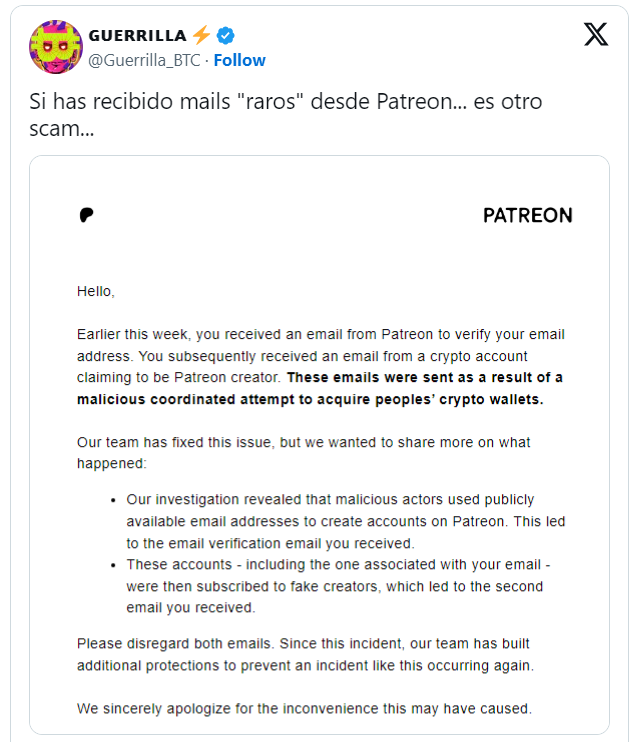In the dynamic world of cryptocurrency and blockchain technology, staying informed and vigilant is not just beneficial, it’s essential. Users of platforms like Patreon, a popular service for supporting creators, have recently raised concerns over an influx of unwanted emails. These communications, which have been perceived as potentially malicious, highlight a growing problem within the crypto community: distinguishing genuine updates from phishing scams. This article, aimed at the informed audience of DecentraHacks.com, delves into this issue, exploring its implications and offering insights into safer digital practices.
Table of Contents,
The Core of the Concern

Patreon, known for its role in democratizing content creation, has been under scrutiny by crypto users who report receiving unsolicited emails. These messages, while seemingly benign, bear the hallmarks of phishing attempts – a common tactic used by cybercriminals to extract sensitive information. The primary concern is the potential risk these emails pose, as phishing scams are notoriously known for compromising personal and financial information, a particularly sensitive issue in the crypto world where transactions are irreversible and anonymity is often prized.
Analyzing the Emails
To understand the severity of the issue, it’s crucial to dissect the characteristics of these emails. Are they just aggressive marketing tactics, or do they contain elements that are commonly associated with phishing, such as requests for personal information, suspicious links, or urgency-inducing language? The crypto community, being tech-savvy and security-conscious, is rightfully apprehensive. However, before jumping to conclusions, a thorough investigation is necessary to ascertain the nature of these emails.
Patreon’s Response and User Reactions

Patreon’s handling of the situation is another focal point. How quickly and transparently they respond to these concerns will be telling of their commitment to user safety. Additionally, user reactions and measures taken by them, such as increased use of spam filters or abandoning the platform, reflect the growing demand for higher security standards and responsible communication practices in the crypto sphere.
Best Practices for Email Security in the Crypto World
This situation serves as a stark reminder of the importance of cybersecurity in the crypto domain. Users must be adept at identifying phishing attempts and practice stringent digital hygiene. This includes using strong, unique passwords, enabling two-factor authentication, and being cautious with email attachments and links. Moreover, crypto platforms and related services must prioritize secure and responsible communication to maintain trust and protect their users.
Conclusion
The issue of unwanted emails from Patreon is not just about inconvenience; it’s a matter of security in an industry where the stakes are exceptionally high. As members of the crypto community, staying informed and adopting best practices in digital security is our first line of defense. Platforms like Patreon must recognize their role in this ecosystem and ensure their communication strategies do not inadvertently become a threat to their users. For DecentraHacks.com readers, this is yet another reminder of the ever-evolving landscape of cryptocurrency and the continuous need for vigilance in the digital age.



